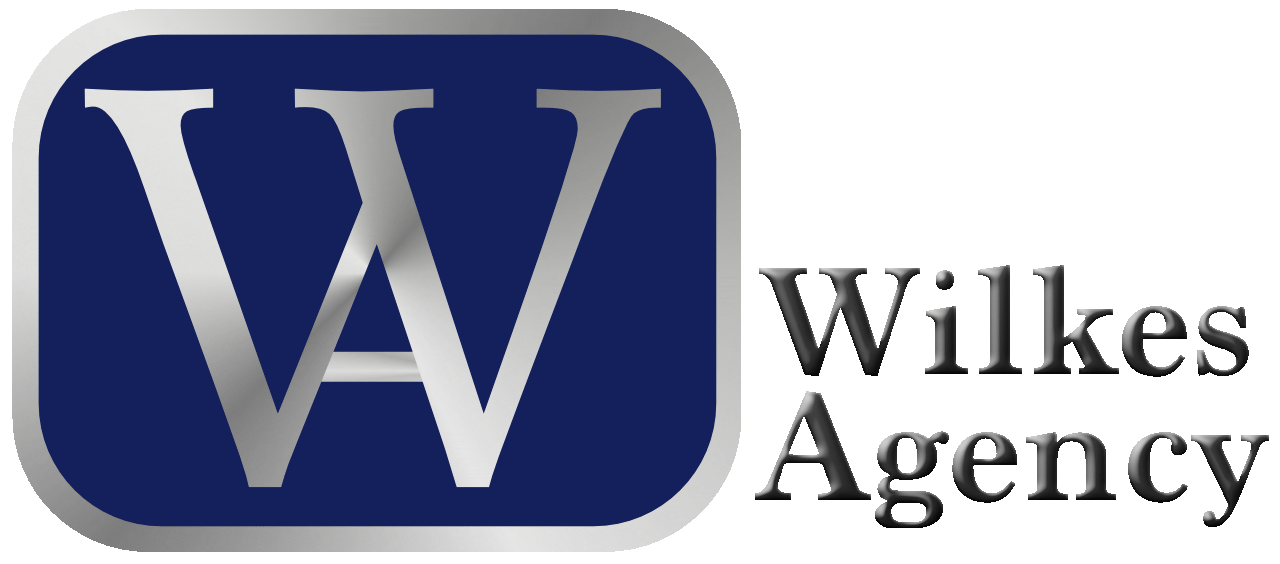Exploring the Different Types of Business Insurance: Protecting Your Enterprise
Gregg Wilkes • February 9, 2024
Business insurance comes in various forms, each designed to protect different aspects of a business's operations. Here are some common types of business insurance:
- General Liability Insurance: This insurance protects businesses from claims related to bodily injury, property damage, and advertising injury. It covers legal fees, settlements, and medical expenses if someone is injured on your property or as a result of your business operations.
- Property Insurance: Property insurance covers damage or loss to physical assets such as buildings, equipment, inventory, and furniture due to fire, theft, vandalism, or natural disasters.
- Professional Liability Insurance (Errors & Omissions): Also known as E&O insurance, this type of coverage protects businesses that provide professional services from claims of negligence, errors, or omissions. It covers legal defense costs and settlements if a client alleges that your professional advice or service caused them financial harm.
- Workers' Compensation Insurance: Workers' comp insurance provides wage replacement and medical benefits to employees who are injured or become ill while on the job. It also protects employers from lawsuits related to workplace injuries.
- Commercial Auto Insurance: This insurance covers vehicles used for business purposes, including company cars, trucks, and vans. It provides coverage for accidents, theft, vandalism, and damage to vehicles.
- Cyber Liability Insurance: Cyber liability insurance protects businesses from losses related to data breaches, cyberattacks, and other cyber threats. It covers expenses such as data recovery, notification costs, and legal fees associated with a breach.
- Business Interruption Insurance: Business interruption insurance provides coverage for lost income and extra expenses if a covered event (such as a fire or natural disaster) disrupts normal business operations. It helps businesses recover financially during the period of interruption.
- Product Liability Insurance: Product liability insurance protects businesses that manufacture, distribute, or sell products from claims related to product defects or failures. It covers legal defense costs, settlements, and damages resulting from injuries or property damage caused by a defective product.
- Employment Practices Liability Insurance (EPLI): EPLI protects businesses from claims related to employment-related issues such as discrimination, harassment, wrongful termination, and employment practices violations. It covers legal defense costs and settlements arising from employee lawsuits.
- Directors and Officers Insurance (D&O): D&O insurance protects the personal assets of company directors and officers from claims alleging wrongful acts or decisions in the performance of their duties. It covers legal defense costs and settlements associated with lawsuits brought against directors and officers.
These are just a few examples of the many types of business insurance available. Depending on the nature of your business, you may need additional coverage tailored to your specific risks and requirements.
Call Wilkes Agency today, it's essential to work with an insurance professional to assess your needs and obtain the right coverage for your business.

Here’s a sample regular maintenance schedule for a class 8 trucks with over-the-road use trucking company — designed to keep your fleet safe, compliant, and running efficiently. This can be adjusted based on truck usage, manufacturer recommendations, and DOT/FMCSA requirements. Use at your own discretion and adapt as needed. ✅ Pre-Trip (Daily Before Every Drive) Check tire pressure & tread Inspect lights & reflectors Check oil level and coolant Inspect air lines and brakes Verify mirrors, horn, and wipers Drain air tanks Check for fluid leaks under the truck 🔁 Every 10,000–15,000 Miles (or every 1–2 weeks for high-mileage trucks) Change engine oil & filter Lubricate chassis and suspension Inspect belts and hoses Check battery condition and terminals Top off DEF fluid (if applicable) Inspect air filter 🗓️ Every 30,000 Miles / Monthly Inspect brake linings & drums Rotate tires (if needed) Inspect suspension and steering components Inspect exhaust system Inspect u-joints and driveline Check wheel bearings Inspect trailer coupling system 🗓️ Every 60,000–90,000 Miles / Quarterly Replace fuel filters Replace air dryer filter Perform alignment check Inspect and adjust clutch (manual transmission) Test cooling system & flush if needed Inspect turbo and emissions systems Replace cabin air filter 🧾 Annually (Or Per DOT Annual Inspection Requirements) Full DOT inspection (FMCSA-required) Emissions testing (if required in your state) Replace coolant (if not done sooner) Drain and replace transmission & differential fluids (based on OEM guidelines) Inspect frame & crossmembers for cracks or rust 📋 Other Maintenance Tips Keep digital logs of all service dates and parts replaced Use maintenance software or a spreadsheet to track each unit Train drivers to report issues during pre-trip/post-trip inspections ⚠️ Why It Matters A consistent maintenance schedule helps: Prevent costly breakdowns Avoid CSA score violations Lower insurance claims and premiums Extend truck life and resale value Keep your fleet FMCSA-compliant At Wilkes Agency we strive to get you the best rates possible for your insurance policy, the maintenance on your truck place a large roll in your insurance rates. If you have any out of service for maintenance issues your rates will increase and if there are too many out of service violations, you could become un-insurable. Contact Wilkes Agency for a fast quote on your trucking insurance!

Growing too fast in the trucking business can be just as dangerous as not growing at all. While it may be tempting to add more trucks, drivers, and routes to capitalize on high demand, rapid expansion without a solid foundation can lead to serious issues — from cash flow shortages and insurance hikes to compliance violations and equipment breakdowns. Without the right systems in place for maintenance, dispatching, safety, and payroll, even a successful company can become overwhelmed and disorganized. Fast growth without control can also damage your reputation with brokers, shippers, and regulators. It's crucial to grow at a pace your business can sustain — with the right coverage, processes, and people in place to support each step. Here's the recommended timeline for growing your trucking business: First 1–6 Months: Start with 1 trucks (often owner-operated), establish authority, build relationships with brokers, and get insured. ✅ Focus: Compliance, cash flow, reputation. First 6–12 Months: Start with 1–2 trucks (often owner-operated), continue to build relationships with brokers, and monitor your safety scores and compliance. ✅ Focus: Compliance, cash flow, reputation. Year 2–3: If you’re profitable and maintaining a strong safety score, you can scale to 3–5 trucks or more, bring on drivers, and potentially get direct shipper contracts. ✅ Focus: Hiring, dispatching, maintenance systems. Year 3–5: Grow into a fleet of 10+ trucks, possibly add your own freight brokerage or lease-on drivers. ✅ Focus: Streamlining operations, fuel programs, tech, and insurance negotiations. 🧱 Factors That Affect Growth Speed ✅ 1. Cash Flow & Financing -You’ll need funds for trucks, insurance, fuel, maintenance, and paying drivers before freight invoices are paid. -Solutions: Use factoring, lines of credit, or SBA loans. ✅ 2. Insurance -Your insurance premium increases with each truck, especially if your safety score drops. -Work with a trucking-savvy agency (like Wilkes Agency) to build a scalable policy that won’t kill your margins. ✅ 3. Driver Availability -Finding good drivers takes time. A bad hire can hurt your CSA score and delay growth. -Offer competitive pay, safety bonuses, and create a company culture that retains talent. ✅ 4. Freight Contracts -Growing fast is pointless if you can’t keep your trucks rolling. -Build strong broker relationships, negotiate dedicated lanes, or work toward direct shipper contracts as you gain experience. ✅ 5. Safety & Compliance -DOT audits, inspections, and violations can freeze your growth and raise your costs. -Invest in ELDs, driver training, regular maintenance, and safety programs. 📈 Signs You’re Ready to Scale Up -You’re turning down loads because you can’t cover them. -Your insurance agent says your safety record supports adding more trucks. -You have strong cash flow or access to capital. -You’ve built relationships with reliable brokers or shippers. 🚫 What to Avoid When Growing Fast -Adding trucks before you have drivers or freight -Poor maintenance leading to breakdowns and inspections -Skipping safety procedures to "save time" -Getting behind on insurance or IFTA filings 🛡️ Wilkes Agency Can Help You Grow Safely We don’t just sell trucking insurance — we help protect your growth. From your first truck to a full fleet, we’ll guide you through the right coverage, DOT requirements, and risk management so your business scales without setbacks. 👉 Want to add trucks or drivers? Let’s talk about how insurance fits into your growth plan.

Primary Liability Insurance is the core coverage required by law for all commercial trucking operations. It covers bodily injury and property damage that you (or your driver) may cause to other people or their property while operating your truck. If you want to operate under your own authority (have your own DOT/MC number), this coverage is non-negotiable — the Federal Motor Carrier Safety Administration (FMCSA) mandates it. 🛡️ What Does It Cover? 💥 Bodily Injury Liability Covers medical bills, lost wages, and other costs if someone is injured in an accident you cause. 🚗 Property Damage Liability Pays to repair or replace vehicles, buildings, or other property damaged in the accident. ⚠️ What It Does Not Cover Primary Liability does not protect your truck or trailer — that's what Physical Damage Insurance is for. It also doesn't cover: Cargo you're hauling (see Cargo Insurance) Injuries to you or your driver (see Occupational Accident or Workers' Comp) Damage when you're not actively under dispatch (see Bobtail or Non-Trucking Liability) 💲 How Much Coverage Do You Need? The FMCSA typically requires a minimum of $750,000, but most carriers and brokers now demand at least $1,000,000 in coverage for liability. Some hauls (like hazardous materials) may require even higher limits. ✅ Who Needs It? Owner-Operators with Their Own Authority Motor Carriers operating their own fleet New trucking companies applying for DOT/MC numbers 📋 Why It's So Important Without Primary Liability Insurance, you can’t legally operate — and a single accident without proper coverage could bankrupt your business. It's the foundation of every commercial truck insurance policy. 🤝 Wilkes Agency Has You Covered At Wilkes Agency , we specialize in trucking insurance tailored to your business. Whether you're a seasoned carrier or just getting started, we’ll help you stay legal, safe, and fully protected. 👉 Need help meeting FMCSA requirements or starting your own authority? Contact us today for a custom quote!

The trucking industry is a vital component of the U.S. economy, responsible for moving nearly 72% of all freight. As we approach 2025, the industry continues to evolve, driven by advancements in technology, shifting regulations, and changing market demands. Here’s what you can expect in the world of trucking in 2025: Increased Automation and AI Integration Automation and artificial intelligence (AI) are transforming the trucking landscape. While fully autonomous trucks are not yet mainstream, semi-autonomous systems and advanced driver-assistance technologies (ADAS) are becoming standard. These systems help reduce driver fatigue, improve safety, and optimize fuel efficiency. AI-powered logistics platforms are also streamlining operations, from route optimization to real-time freight tracking. This integration allows trucking companies to deliver goods more efficiently and respond dynamically to unexpected changes. Sustainability Takes Center Stage Environmental sustainability is a growing priority in the industry. By 2025, many fleets will have adopted electric and alternative fuel vehicles, such as hydrogen-powered trucks, to meet stricter emissions regulations and appeal to environmentally conscious clients. The infrastructure to support these greener technologies, including charging stations and hydrogen fueling networks, is expanding rapidly. Additionally, advancements in aerodynamics and lightweight materials are helping improve fuel efficiency across traditional diesel fleets. Evolving Workforce Dynamics The trucking industry faces ongoing challenges with driver shortages. By 2025, efforts to attract and retain drivers will likely focus on improved working conditions, competitive pay, and increased diversity. Technology will also play a key role in workforce dynamics. Autonomous systems may reduce the demand for drivers on certain routes, while creating new opportunities in areas like vehicle maintenance, fleet management, and technology oversight. Digital Transformation in Logistics Digitalization is reshaping how trucking companies operate. Blockchain technology, for example, is being adopted to enhance supply chain transparency and secure transactions. Real-time data sharing between shippers, carriers, and customers ensures better communication and more reliable delivery schedules. Cloud-based platforms are also enabling smaller carriers to compete with larger fleets by providing access to advanced tools for load matching, invoicing, and compliance management. Regulatory Changes and Compliance The regulatory landscape is continuously evolving. In 2025, expect further emphasis on safety and environmental standards, including stricter emissions targets and updated hours-of-service (HOS) rules. Electronic logging devices (ELDs) are now standard, and new technologies may emerge to ensure compliance with future regulations. Staying informed about these changes will be crucial for carriers to avoid fines and maintain operational efficiency. Rise of E-commerce and Last-Mile Delivery The surge in e-commerce continues to impact trucking, particularly in the area of last-mile delivery. By 2025, demand for efficient and timely last-mile services will grow, driven by consumers’ expectations for same-day and next-day delivery. Smaller, more agile vehicles and delivery drones are expected to complement traditional trucks, helping companies navigate urban environments and reduce delivery times. Focus on Safety and Security Safety remains a top priority, and technological advancements are enhancing security measures. Features like collision avoidance systems, predictive maintenance, and driver monitoring are becoming more widespread. Cybersecurity is another growing concern, as increased connectivity in vehicles and logistics systems creates vulnerabilities. Companies will need to invest in robust cybersecurity solutions to protect their assets and data. Adaptation to Market Volatility Global supply chain disruptions, fluctuating fuel prices, and geopolitical uncertainties have highlighted the need for resilience in trucking operations. In 2025, companies will rely on data analytics and flexible strategies to adapt to market volatility and maintain profitability. Opportunities for Growth Despite challenges, the trucking industry in 2025 offers significant opportunities for innovation and growth. Companies that embrace technology, prioritize sustainability, and focus on workforce development will be well-positioned for success. As the industry evolves, staying informed and adaptable will be key to thriving in this dynamic environment. Whether you’re a fleet operator, driver, or logistics manager, the future of trucking holds exciting possibilities. Contact Wilkes Agency today to get your insurance quote !

Truck drivers and road trippers alike know that finding a good truck stop can make all the difference on a long journey. Whether you’re looking for a quick fuel-up, a hearty meal, or a safe place to rest, the right truck stop can enhance your travel experience. Here are some tips for finding the best truck stops across the USA: Leverage Technology Today’s truckers and travelers have powerful tools at their fingertips. Apps like Trucker Path , TruckMap , and myPilot can help you locate nearby truck stops, read reviews, and even check for available parking spots. These apps provide detailed information on amenities, fuel prices, and more, making your planning more efficient. Prioritize Amenities The best truck stops offer more than just fuel. Look for locations with clean restrooms, spacious parking, and essential services like showers and laundry facilities. Some stops even go above and beyond with fitness centers, pet-friendly areas, and entertainment options. Knowing what you need ahead of time can help you select the right stop. Check Food Options Food is an important factor when choosing a truck stop. Many major chains like Love’s Travel Stops , Pilot Flying J , and TA (TravelCenters of America) offer a mix of fast food and sit-down dining options. If you’re in search of something unique, independent truck stops like Iowa 80 Truckstop or Jubitz Travel Center often have local specialties or healthier meals. Read Reviews and Recommendations Take advantage of online reviews and forums where truckers share their experiences. Websites like Google Maps, Yelp, or dedicated trucking forums can provide insights into the cleanliness, safety, and overall quality of a truck stop. Word of mouth from fellow drivers is also invaluable when uncovering hidden gems. Familiarize Yourself with Top Chains Major truck stop chains are popular for a reason. Chains like Love’s , Pilot Flying J , and TA/Petro are known for consistency, cleanliness, and a wide range of services. Love’s is particularly noted for its well-maintained facilities, while Pilot Flying J often features extensive food options and reliable fuel services. Plan Your Route Planning ahead can save time and stress. Use GPS tools and apps to map out truck stops along your route. Look for stops with competitive fuel prices, plenty of parking, and the amenities you’ll need during your journey. Pre-planning also helps you avoid stopping in unfamiliar or less safe locations. Safety First Safety is paramount when choosing a truck stop, especially for overnight stays. Look for well-lit locations with 24/7 surveillance or on-site security. Choosing a truck stop with plenty of other vehicles around can also provide added peace of mind. Explore Regional Gems While major chains dominate the landscape, don’t overlook regional favorites. Stops like Iowa 80 Truckstop in Walcott, IA (the world’s largest truck stop), South of the Border in South Carolina, or Jubitz Travel Center in Portland, OR, offer unique amenities and experiences that set them apart. Network with Fellow Drivers Experienced drivers often have the best tips for finding great stops. Engage with other drivers at rest areas or online forums to discover their favorite locations. Personal recommendations can lead you to excellent stops that apps and reviews might miss. Take Advantage of Loyalty Programs Many truck stop chains offer rewards programs that provide discounts on fuel, food, and other purchases. Signing up for these programs can help you save money and access exclusive perks, especially if you’re a frequent traveler. By using these tips, you can make your journey more comfortable, efficient, and enjoyable. Whether you’re hauling freight or embarking on a cross-country adventure, the right truck stops can turn your road trip into a more pleasant experience. Safe travels from Wilkes Agency !

Here are some valuable tips for parents with new drivers to help ensure safety and build confidence: Set Clear Rules and Expectations Establish rules like no texting, limiting night driving, and restricting the number of passengers. Use a parent-teen driving agreement to outline responsibilities and consequences. Practice, Practice, Practice Spend plenty of time practicing in different conditions (rain, night, highways). Gradually increase the level of difficulty to build their skills. Model Safe Driving Behavior Be a role model by obeying traffic laws, avoiding distractions, and staying calm. Kids often mimic their parents' driving habits. Discuss the Risks of Distracted and Impaired Driving’s Teach them about the dangers of texting, eating, or using a phone while driving. Emphasize never driving under the influence of drugs or alcohol. Understand Graduated Driver Licensing (GDL) Laws Familiarize yourself with your state’s GDL laws, which often limit when and how teens can drive. Use these laws as a guideline for setting family rules. Consider a Safe Vehicle Choose a car with high safety ratings, modern safety features, and manageable power. Avoid high-performance vehicles that might encourage risky driving. Invest in Driver Education Enroll your teen in a reputable driver’s education program. Many programs offer real-world tips and practice opportunities. Encourage Defensive Driving Teach them to anticipate the actions of other drivers, stay aware of their surroundings, and maintain safe following distances. Install Monitoring Apps or Devices Consider using technology that tracks speed, braking, and location to monitor their driving habits. Use these tools as an opportunity for constructive feedback, not punishment. Reward Responsible Behavior Praise good driving habits and celebrate milestones. Consider incentives for maintaining a clean driving record. Bonus Tip: Keep Communication Open Encourage your teen to reach out if they’re in an unsafe situation, like needing a ride after a party. Assure them that safety comes first, and they won’t face harsh consequences for calling for help. Call Wilkes Agency for a fast and easy quote for your car insurance !

Life on the road as a long-haul truck driver can be challenging, especially when it comes to maintaining hygiene. Regular showers not only keep you feeling fresh but also improve your health and confidence while interacting with customers and colleagues. Here's everything you need to know about showering on the road and staying clean during those long hauls. Where to Find Showers Truck drivers have several reliable options for showering while on the road: Truck Stops: Most truck stops, such as Love’s, Pilot, Flying J, and TA, have clean, private shower facilities. They often provide towels and toiletries for convenience. Rest Areas: Some rest stops offer shower facilities, although they may not be as common or well-equipped as truck stops. Gyms with Nationwide Memberships: Chains like Planet Fitness or Anytime Fitness offer affordable memberships with access to showers at locations across the country. Campgrounds: If you're parked overnight at a campground or RV park, many offer shower facilities for a small fee. Tips for Using Truck Stop Showers Earn Free Showers: Many truck stops offer free showers with fuel purchases. Signing up for a loyalty card with major truck stop chains can help you save money. Timing Matters: Try to shower during off-peak hours to avoid long waits. Early mornings or late evenings are usually quieter. Bring Your Own Essentials: While most truck stops provide towels, it’s a good idea to carry your own shower kit with items like soap, shampoo, a towel, and flip-flops for cleanliness. Check Cleanliness: Most truck stops pride themselves on clean facilities, but always take a quick look to ensure the shower meets your standards. Staying Fresh Between Showers Sometimes, it may be a day or two before you have access to a proper shower. Here are tips for staying clean and comfortable in between: Carry Wet Wipes: Body wipes or baby wipes are a lifesaver for quick freshening up. They’re great for cleaning your face, neck, and arms. Use Dry Shampoo: Keep your hair feeling fresh without water by using dry shampoo. Invest in Portable Showers: Portable camping showers can be a great option when parked in remote areas. They’re compact, easy to use, and can be filled with warm water. Wear Clean Clothes: Always have a supply of clean clothes. Changing into fresh outfits regularly can make a big difference. Organize Your Shower Kit A well-stocked shower kit is essential for life on the road. Here’s what to include: Travel-sized shampoo and conditioner Soap or body wash A quick-dry towel Flip-flops for hygiene Deodorant A toothbrush and toothpaste A waterproof bag to keep everything together Benefits of Regular Showers on the Road Staying clean and hygienic isn’t just about feeling good; it has several practical benefits: Boosts Confidence: You’ll feel better about yourself when meeting people or making deliveries. Improves Health: Clean skin reduces the risk of rashes, infections, and other hygiene-related issues. Enhances Comfort: After a long day of driving, a shower can help you relax and sleep better. Final Thoughts Showering as a long-haul truck driver may take a little planning, but it’s entirely manageable with the right strategies. Prioritize stops with good facilities, keep a well-stocked shower kit, and use creative solutions when access to showers is limited. Maintaining hygiene on the road isn’t just about staying clean—it’s about taking care of your well-being so you can continue your journey confidently. At Wilkes Agency, we understand the unique challenges truck drivers face. Whether it’s tips for life on the road or tailored trucking insurance solutions, we’re here to help you drive with peace of mind. Safe travels!

What is Open Enrollment? Open Enrollment is the yearly period when you can sign up for health insurance or make changes to your existing plan. This is a crucial window if you need to enroll in a plan, update your coverage, or switch to a different policy. For 2024 coverage, the Open Enrollment period runs from November 1, 2023, to January 15, 2024. Key Dates to Remember November 1, 2023: Open Enrollment begins. December 15, 2023: Last day to enroll for coverage that starts on January 1, 2024. January 15, 2024: Open Enrollment closes. Who Needs to Enroll? Open Enrollment is the time for anyone who needs to: Get a new health insurance plan: If you don’t have health insurance, this is the time to enroll. Make changes to your existing plan: If your current plan isn’t working for you, now is the time to make changes or switch plans. Renew or update information: If you have had changes in your income or household, updating your information could affect your premium or qualify you for new savings. Why It’s Important to Act Now Missing the Open Enrollment deadline means you may not be able to get or change your coverage unless you qualify for a Special Enrollment Period due to certain life events, like losing other coverage, getting married, or having a baby. What Happens If You Don’t Enroll? If you miss the deadline, you may have to go without coverage for the entire year unless you qualify for special circumstances. Going uninsured not only leaves you financially vulnerable in case of unexpected medical needs but also could mean you miss out on preventive care that can be vital to your health. How to Prepare Review Your Current Plan: Look at your existing coverage to see if it still meets your needs. Assess your plan’s costs and benefits to make sure you’re getting the best value. Gather Key Information: Have all your necessary documents ready, such as Social Security numbers, income information, and current insurance details. Compare Plans: Don’t just stick with the same plan without comparing options. Premiums, deductibles, and out-of-pocket costs can change yearly, so it’s crucial to shop around and find the best option. Special Enrollment Periods While the Open Enrollment window is the main period for getting coverage, there are Special Enrollment Periods if you experience significant life changes, such as: Getting married or divorced Having a baby or adopting a child Losing job-based coverage Moving to a new area Domestic Violence Survivor How Wilkes Agency Can Help Navigating health insurance options can be overwhelming, but you don’t have to do it alone. At Wilkes Agency, we can help you compare plans, understand your options, and get the coverage you need for 2024. Whether you’re signing up for the first time or reevaluating your current plan, we’re here to guide you every step of the way. Don’t let Open Enrollment pass you by. This window only comes once a year, so make sure you’re prepared to get the health coverage you need. Reach out to Wilkes Agency to get personalized assistance and ensure you’re covered for the upcoming year.

October is recognized as Domestic Violence Awareness Month, a time to shine a light on an issue that affects millions of individuals and families across the country. While much focus is on support services, one critical aspect often overlooked is the role of health insurance in helping survivors of domestic violence access the care and resources they need. Why Health Insurance is Vital for Survivors: Healthcare is often a crucial part of recovery for survivors of domestic violence , offering access to physical, mental, and emotional care. Health insurance can be a lifeline, covering medical visits, mental health services, emergency care, and even ongoing therapy. For many survivors, their health needs go beyond the immediate crisis and extend into long-term care and recovery. Coverage Options for Survivors: Thanks to protections offered by the Affordable Care Act (ACA) , survivors of domestic violence may qualify for special health insurance enrollment periods. This means they don’t need to wait for the typical open enrollment period to secure coverage. Many health insurance plans cover essential services like counseling, prescription drugs, and medical visits, which are critical for individuals rebuilding their lives after trauma. Mental Health Resources: Survivors of domestic violence often face significant emotional and psychological challenges. Health insurance plans frequently include mental health benefits, allowing access to counseling and therapy services. These services are essential for long-term recovery, helping survivors rebuild self-esteem, address trauma, and navigate their healing journey. Confidentiality Protections in Health Insurance: Some survivors may be concerned about their abuser discovering their treatment records or insurance usage. Fortunately, the Health Insurance Portability and Accountability Act (HIPAA) provides privacy protections that ensure sensitive health information remains confidential. How Wilkes Agency Can Help: At Wilkes Agency, domestic abuse is an issue that we are sadly well aware of which is why Teresa proudly sits on the board of a local DV shelter and we understand the sensitive and unique needs of survivors of domestic violence. Teresa is here to guide you through your health insurance options, whether you're seeking coverage for the first time or exploring additional resources. You deserve peace of mind, support, and a pathway to healing, and we're here to help you every step of the way. Domestic violence awareness is about more than acknowledging the issue—it’s about providing the necessary tools and resources to help survivors rebuild their lives. Health insurance plays a key role in this, ensuring that survivors receive the medical and mental health care they need. This Domestic Violence Awareness Month, let’s raise awareness not just of the problem, but also of the solutions, including the health coverage that can make all the difference.



